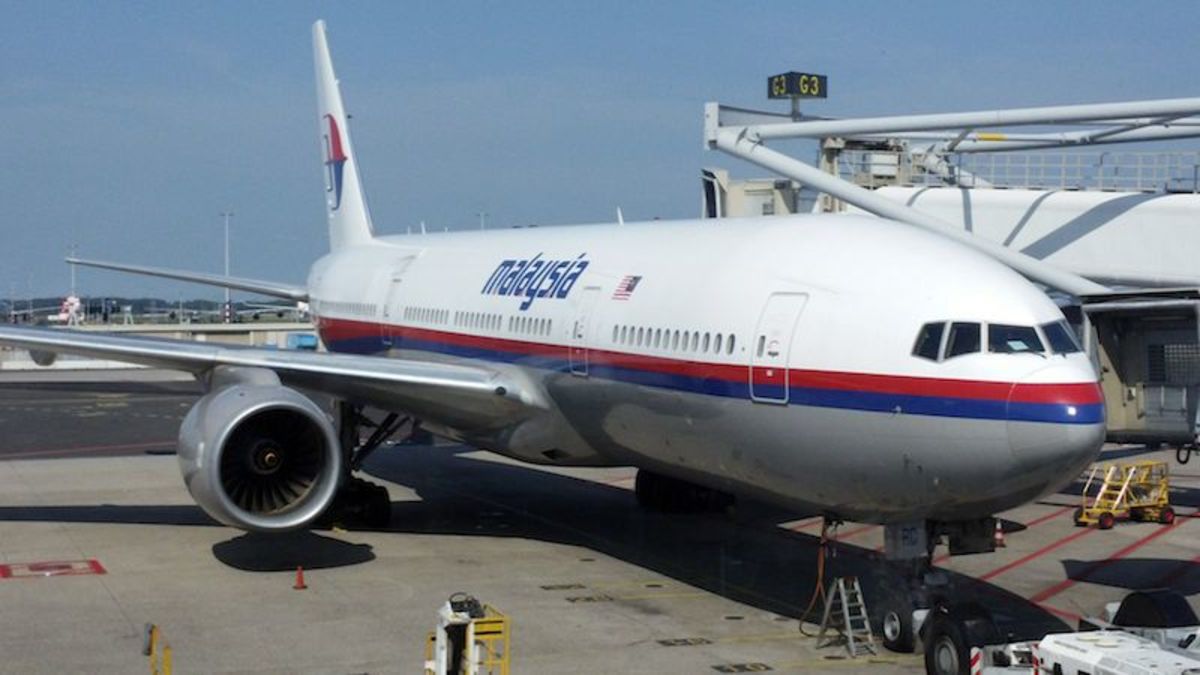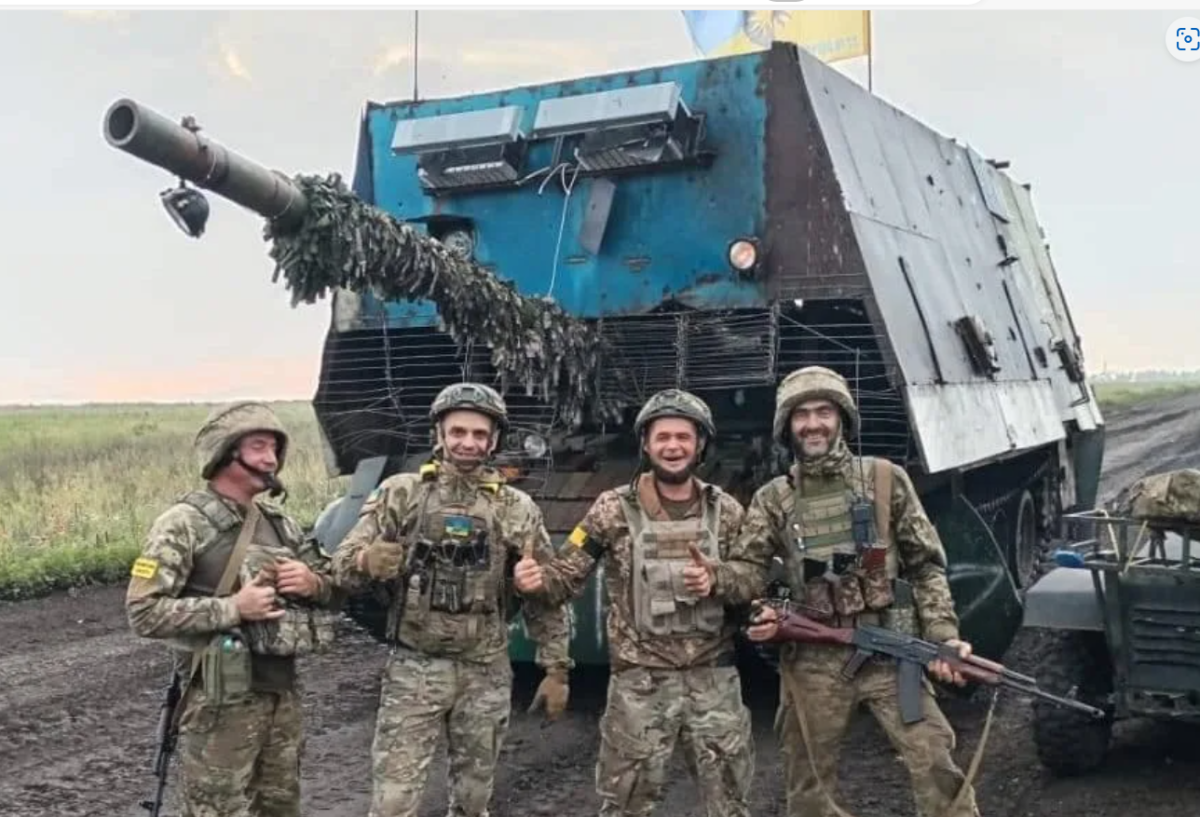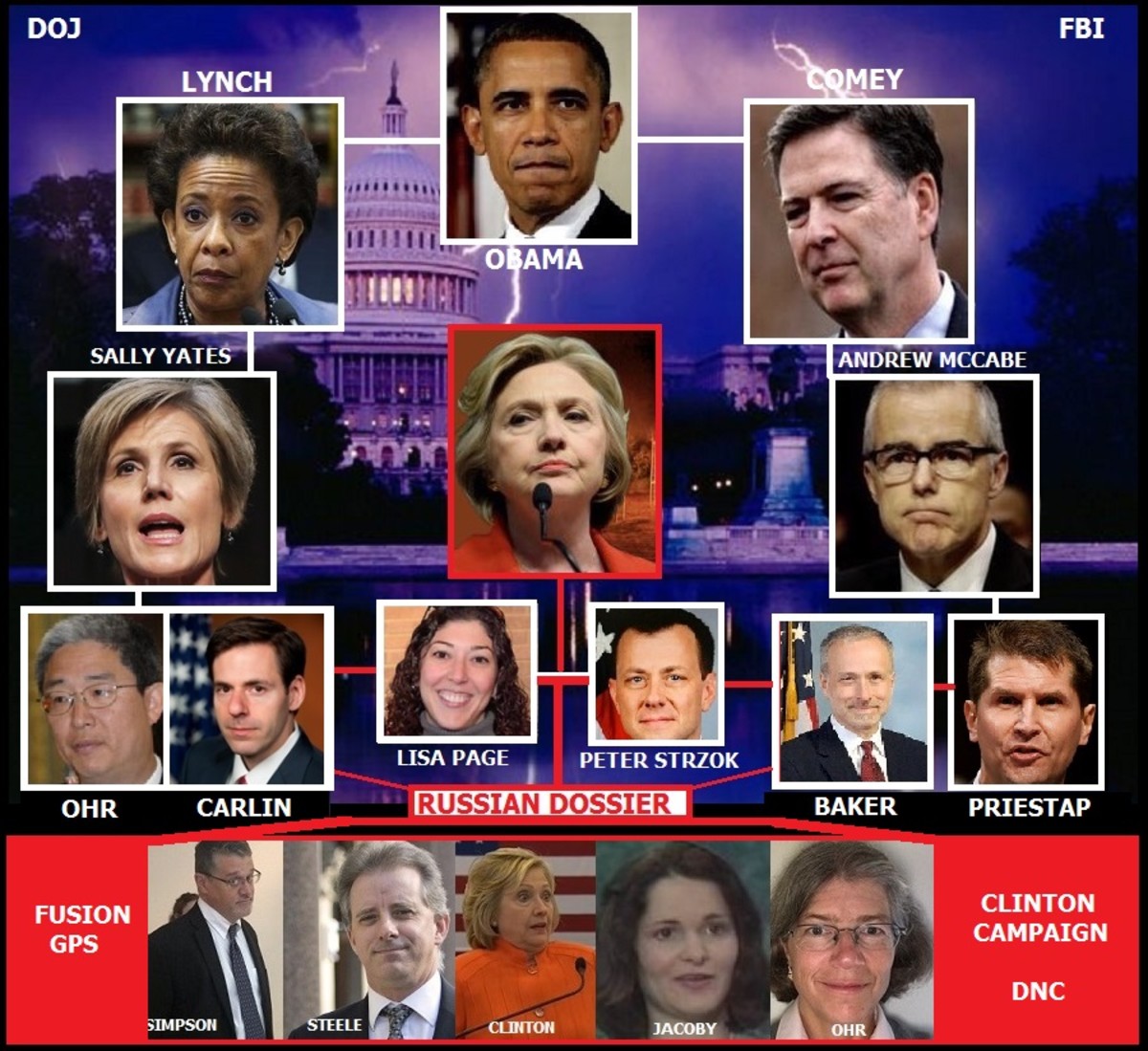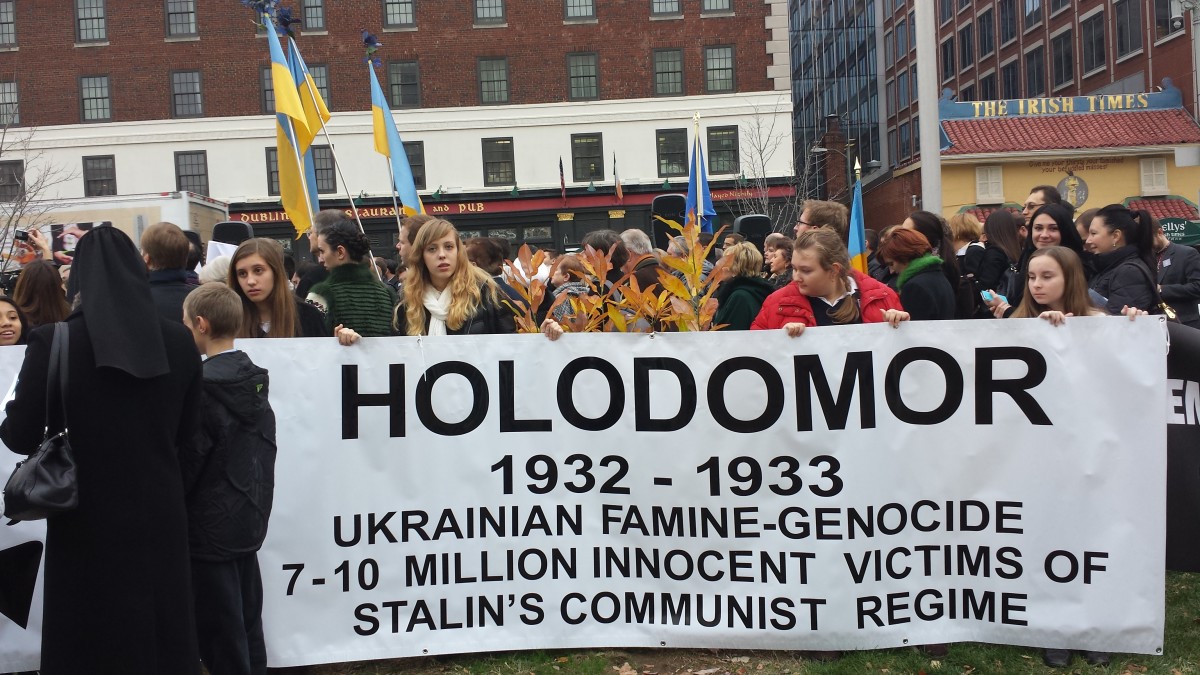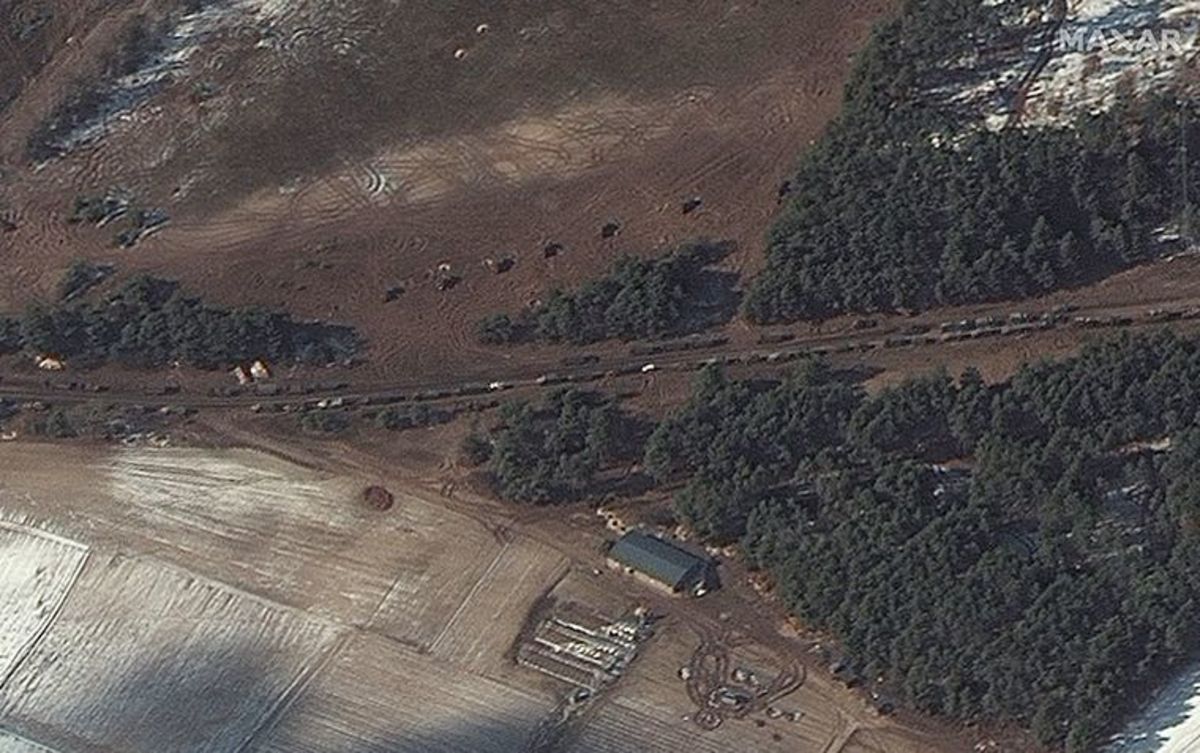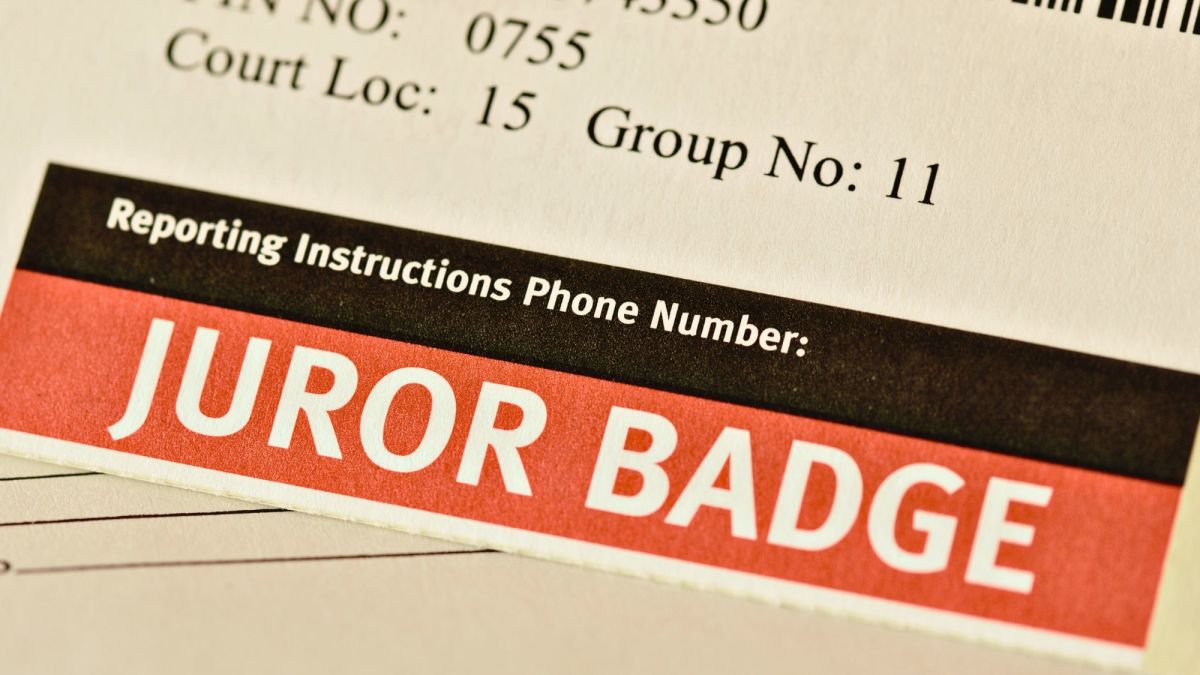Wrong Decisions 23 Years Ago Haunt Us In Ukraine and Russia Today
Little Has Changed in Seven Years
I wrote this piece back in 2014, when Putin invaded Ukraine the first time. In reading through this again, I see not much has changed other than the once minority voice in the Republican Party has become the vast majority voice of the Trump Republican Party. They have taken criticizing a president during a foreign crises to new, disgusting levels.
I have updated the text below to reflect current events.
We Had a Choice and Chose Not to Take It
THE CURRENT EVENTS IN THE UKRAINE AND RUSSIA HIGHLIGHT decisions made decades earlier that have gone, not surprisingly, very wrong. In 1946, President Truman chose to make our greatest enemies our greatest allies. General Macarthur, during the Japanese Occupation, and the Marshall Plan after WW II were responsible, by and large, for rebuilding Japan and Europe (including West Germany), respectively, and turning them into the greatest allies and trading partners in American history. In 1992, after the collapse of the Soviet Union in 1991, President H.W. Bush and then President Clinton had the same choice to make ... they failed to make it. This failure has had terrible consequences in 2014, and now in 2022!
In 2014 and again in 2022, we are paying the price for that failure. Most of the blame, I believe, seems to rest with President Clinton and the Congresses during his two terms. While he talked a wonderful game, in hindsight, it is clear, he and his advisors didn't understand the problem. I happened to be going through Air War College in 1991 - 1992 and we had several seminars on international affairs, with a focus on Russia. It was clear from the experts we listened to, as well as the studies we accomplished, what the wrong things to do were. As it turned out, without fail President Bush and President Clinton, along with their foreign policy teams seemed hell bent on doing every one of them.
What it amounted to, if any of you saw the Music Man you will recognize this phrase, they "didn't understand the territory". Meaning they didn't understand the Russian psyche or history and took exactly the wrong approach. As a consequence and very predictably, a Putin-like character is in charge of Russia again. It may have happened anyway, but America certainly took on the role of enablers.
RUSSIA
A Little Russian History
IT MAY SEEM STRANGE, but driving Soviet, and now Russian foreign policy is paranoia. No, I am not being mean or derisive, but instead I am being realistic. The territory that comprises most of what is historic Russia is constructed such that it invites invasion; meaning there are few natural barriers to protect it from attack. And, invaded they were; from the Mongols from the East in 1283 up to the German's from the West in 1939. In addition, there were uncountable internal wars of one sort or another; Russian society has been unbelievably violent and oppressed, and it has left its imprint on their psyche. It is very understandable to see why they are extremely distrustful of outsiders and, I suspect, of one another.
American foreign policy toward Russia after the collapse of the Soviet Union has never been mindful of that; we have always been heavy-handed in our attitude toward Russia in our diplomacy leading to predictable and unfavorable results, much to our bafflement. Even President Clinton, in 1993, who seemed to have a grasp of the situation, wasn't able to pass that understanding on to his staff and Cabinet. Further, Congress clearly never took the time to understand what it could take to make our former foe a good ally. Congressional actions as well as the things the Bush 41, Clinton, and Bush 43 administrations did all but guaranteed the sort of reaction we are seeing from Vladimir Putin today. If fact, it was the approach we took in those 18 years that helped Putin regain power.
I am not saying, of course, that Putin wouldn't have ended up on top anyway, or responding to the Ukrainian situation the way he currently is in spite of our wisest efforts. But, I am saying, the probability of what we are facing today would be much reduced had prior administrations and Congresses, mainly during the Clinton era, been mindful of Russian history and mindset, and had acted accordingly. It is not rocket science, it is common sense.
Ukrainian History
ONE MIGHT BE ABLE to argue that what is modern Ukraine today began back around 880 BCE with the Kievan Rus' (I am referencing a Wikipedia article with my own twist) centered around today's Kiev. From this beginning was founded the greatest Eastern Slav state that prevailed from 880 to about 1132 BCE and became the national identity of modern day Ukrainians and Russians.
From 1200 BCE on, Kievan Rus' lost their identity, never to regain it again, unless you consider the Soviet Union's consolidation of much of what used to be Kievan Rus' territory into what looks like today's Ukraine as being a kind of resurrection. Ukraine officially became an independent nation on August 24, 1991.
In the map above you can bring up a terrain view of modern Ukraine with the Crimea at the bottom and a few city names as well, you will need to uncheck "terrain" in the Map drop-down box. If you size it such that you can see both the 'A' and 'B' pins with Odesa (which, on 3/6/14 are having pro-Russian protests) near the bottom left and Kharkiv near the upper right, then you are in a position to see the Ukrainian ethnic-divide. In a very loose way, on the West -Northwest side of a line roughly drawn between Odessa and Kharkiv, you have Ukrainian-speaking Ukrainians and on East-Southeast side are mainly Russian-speaking Ukrainians; and that is part of the conundrum.
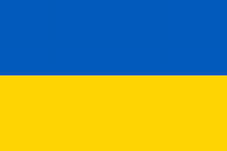
A Crisis in the Making
- 880 BCE: Kievan Rus' founded around modern day Kiev
- 1132: Kievan Rus' empire disintegrated
- 1939: After centuries of slicing and dicing of Ukraine, the attack by Germany and Russia on Poland finally reunited most of the Ukraine together again, for the Bolsheviks had give Western Ukraine to Poland, an independent state
- 1954: Kruschev gives Crimea to the Ukraine
- August 24, 1991: Ukraine gained independence
- 1996: Ukraine passed its second constitution changing the governmental structure into a semi-presidential republic form which concentrates power in the hand of the executive
- 2004:Viktor Yanukovych, was declared the winner of the presidential elections. The Supreme Court of Ukraine later ruled this election invalid due to fraud. This resulted in the peaceful Orange Revolution, bringing Viktor Yushchenko into power
- 2010: Viktor Yanukovych was elected President again
- November 21, 2014: Viktor Yanukovych announces abandonment of economic agreement that would strengthen ties with the European Union and seeks closer cooperation with Moscow. Protesters take to the streets.
- December 1, 2013: A protest attracts about 300,000 people at Kiev's Independence Square. Activists seize Kiev City Hall.
- January 22, 2014: The first protest deaths. Two die after being hit with live ammunition and the third after a fall during a confrontation between police and demonstrators manning barricades.
- January 28, 2014: The prime minister resigns and the parliament repeals harsh anti-protest laws.
- February 18, 2014: Street clashes erupt, leaving at least 26 dead and hundreds injured.
- February 22, 2014: Yanukovych flees the country after a political coup. Opposition leader Yulia Tymoshenko is released from prison.
- February 24, 2014: Ukraine's interim government and president, Oleksandr Turchinov, issues a warrant for the arrest of Yanukovych.
- February 25, 2014: Pro-Russian protesters take a stand in Crimea. Yanukovych's former chief of staff is wounded by gunfire and hospitalized.
- February 26, 2014: Amid clashing protesters in Crimea, Putin orders military exercises in western Russia. Secretary of State John Kerry vows $1 billion in loan aid to Ukraine.
- February 27, 2014: Yanukovych surfaces in Russia, appearing for the first time since fleeing Ukraine. Russian jets are on standby in case of combat.
- February 28, 2014: Armed men in Russian military uniforms take control of key airports in Crimea. Russian marines surround a Ukraine coast guard base in Sevastopol. Obama warns "there will be costs" for Russian military intervention in Ukraine.
- March 3, 2014: Kerry travels to Ukraine.
- March 4, 2014: In Kiev, Kerry offers the $1 billion loan guarantee and technical experts to help recover assets, referring to the billions reported to have been funneled out of the country by Yanukovych. Putin says he has no intention to "fight the Ukrainian people."
- March 5, 2014: A special U.N. envoy cuts short its mission in Crimea after a group of armed men order them to leave the region, according to U.N. officials.
- March 6, 2014: Obama seeks visa restrictions and economic sanctions on Russians who have been involved in military action in Ukraine. The House Foreign Relations Committee calls on Obama to enact financial and trade sanctions against Russia. Crimea Parliament votes to become an autonomous region associated with Russia; a referendum is scheduled in ten days
- March 17, 2014: The referendum was held with 90+% voting to join Russian. Of course it was only the Russian-speaking Crimean's who voted; the ethnic Tartars and Ukrainians boycotted the referendum since it was illegal.
- March 22, 2014: The Russians confiscated (stole) a Ukrainian submarine and overran a Ukrainian military base located in the Crimea. Assuming the Ukrainians cannot get these assets back from the Russians, then they should unilaterally lower any monetary debt they owe Russian by the replacement value of these assets.
On The Move
THE UKRAINE IS AN ETHNICALLY AND LANGUAGE DIVIDED COUNTRY, but not by nationality. Whether they are Russian-speaking or Ukrainian-speaking, they are nevertheless Ukrainian. As free-lance photographer and Christian Ministry worker Maia Mikhaluk said in a March 4, 2014 CNN Opinion piece
"Over our 22 years of Ukrainian independence, fears of language or ethnic persecution have never come true. But they were kept alive by Russian propaganda. We understand that Putin is trying to escalate tension and provoke civil war in Ukraine right now. He can't afford for a free Ukraine to succeed: His own people might get an idea that it's possible to overthrow a tyrant and build a prosperous country."
American's can relate to this kind of intense propaganda put out against President Obama's stimulus and Affordable Care Act in America; it has the same purpose. As mentioned earlier, President Putin has a vision of a "Greater" Russian and has been laying a very oppressive propaganda campaign on the citizens of Eastern Ukraine via the State-controlled Russian media outlets.
The Crimea, on the other hand, appears to be another story altogether. It was never part of the Kievan Rus' empire nor was it part of the original Ukraine cobbled together by the Soviet Union. In a little twist of irony, it was February, 60 years ago, that Nikita Khrushchev handed the Crimea over to the Ukraine. The Crimea is also home to Russia's only warm-water naval port and, as a consequence, of extreme strategic and national importance. I would think it is so important, President Putin would go to war over the potential loss of it.
It is the Crimea where most of the action has taken place so far. Putin either sent in Russian troops from the outside, or, more likely, used troops from bases they already have in the Crimea to take over the local airports and to patrol. These "local militia", as Putin calls them. who have no identify features on them have kept the Ukrainian military locked in their bases for fear of a larger Russian invasion.
To date, that has been the extent of military action in the Ukraine itself although Russian troops have been demonstrating along the Eastern border of Ukraine for a week now.
Reaction
FOR ITS PART, THE WEST, MEANING EUROPE AND THE U.S. has been trying to get ahead of this rapidly developing situation which came way out of left field. It appears the U.S. and Germany, who has the closest working relationship with Putin, are taking the lead. The rest of Europe is trying to get its act together, which is no easy task given the number of different national interests which must be coordinated. It would be like trying to get the 50 States of America to agree on something if we still had the Articles of Confederation in place; it's what the theme song from Man of La Mancha is all about.
And if we think we have a tough row to hoe, it is nothing compared to what the new Ukrainian government has to face; I do not envy them their job. The only thing I hope is they take what Maia Mikhaluk said in her CNN opinion piece to heart as they try to lead their diverse country:
"My kids speak Ukrainian in school and with many of their friends, and we speak Russian at home. When my son's fourth-grade teacher talks to me, she speaks Ukrainian. I respond in Russian. We don't even notice that our conversation is in two languages."
It is certainly a tough thing to do in times of peace and an order of magnitude harder to do when things are stressful. We in America have nothing to hold up to that ideal either, at least not anymore, if you listen to rhetoric spewing out on the Internet, cable, and talk radio. But to survive as a new nation (and for America to survive as an old one), it would be best to pay attention to what Maia means.
She also has a succinct way of wrapping up the issues with eastern Ukraine and the Crimea and what she thinks these Ukrainians truly want:
"Many people in Crimea and eastern Ukraine don't want the protection of Russian President Vladimir Putin. But there are some who are afraid of forced Ukrainization because they have been fed propaganda by Russian TV channels for years. The purpose is to convince Ukrainians that we are divided, not one country, and that the safest course of action for Russian-speaking areas is to break away and join Russia.
These ideas have been cultivated since I was a child. I remember when I lived in Donetsk in the '90s, how scared we were that a candidate from western Ukraine would win an election and force us to speak Ukrainian. But when I moved out of the area of aggressive Russian information, I quickly realized I can speak Russian in Kiev or Lviv and no one will ever be upset with me!"
I can see this taking place in the Crimea, which is 60% Russian-speaking and 40% Ukrainian; who we haven't actually heard from much so far. Are the Crimeans reasonably afraid of the Ukrainian government or afraid simply because of Russian propaganda? It would seem to me that would be goal #1 of the Ukrainian gov't as well as Europe, NATO, and the U.S. I should be seeing/hearing about a massive propaganda campaign coming from the North and the West to counter Putin's influence, but I don't.
I don't think you are going to persuade Putin to do squat; but you might take away his base by bringing the Russian Ukrainians back to Ukraine.
What To Do With the Crimea
I DON'T REALLY KNOW, BUT HAVE SOME THOUGHTS. Hopefully some of my international readers will as well and will share them with us. But, at the moment, I see it this way given the information I have -- if the referendum in the Crimea, which I agree is illegal, strongly supports an autonomous status linked with Russia, then I don't think the Ukrainian government should fight very hard to oppose their wishes.
The Ukrainian government has, of course, the legal right to do so, it is their territory after all sice the Soviet Union ceded it to them, but is the fight worth it? They are going to have enough trouble consolidating what they have. Their natural resources elsewhere in the country far outstrip the tourism that would be lost with the Crimea. They also have other ports along the Black Sea from which base their Navy and commerce; probably not as nice as the Crimea, but doable. For that, they give up a massive headache.
On the other hand, if the vote is close, then all bets are off in my opinion.
3/17/2014: Now that 97% of the Russian-speaking citizens who went to the polls to vote in the illegal, Russia-sponsored referendum opted to join the Russian Federation. One would expect that number since the Ukrainians and Tartars living in Crimea boycotted the vote.
Since only 58% of the Crimean population is actually Russian, what will the 12% Tartars and 25% Ukrainians do? It wasn't that long ago, 1944, when the Soviet Union forcibly removed all Tartars to Eastern Russia from Crimea to punish a small segment that supported Nazi Germany in WWII. It wouldn't be surprising the Tartar population that migrated back are now terrified of a repeat performance or at least the beginning of persecution by their Russian masters. Likewise, since the Crimean Ukrainians didn't play along with the invasion from Russia and its hostile takeover of their land, what will be their fate? Will 37% of the Crimean population rise up in revolt?
The Next Chapter - Eastern Ukrain
DATELINE-4/10/2014: AS EXPECTED, V. PUTIN HAS SET HIS SIGHTS ON THE EASTERN UKRAINE. His version of the CIA, Spetsnaz, but as an arm of the Russian military rather than a civilian agency, are actively inside eastern Ukraine fomenting revolution. So far three cities have had buildings taken over by pro-Russian "protesters" demanding a Crimea-style referendum; one was taken back by Ukrainian forces.
One Thing America Must Do!!
ONCE UPON A TIME IT WAS A NO-BRAINER that in times of real crisis, like this one, that Americans knew instinctively was to "Speak With One Voice". as former Secretary of Defense Robert Gates put it. And that voice has always been the sitting President's. It seems that today, many members of the Republican establishment (skipping forward 7 years, now the Trump Republicans) need to go back to kindergarten to learn this golden rule regarding foreign crisis.
Once the crisis is over, then they can come back to current conservative political practice of Obama (now Biden)-bashing which is easier to do than passing laws. But until then, the rule their mothers taught them must be practiced that "if you don't have something good to say (regarding the situation in the Ukraine), don't say anything" to which I will add that in the case of foreign policy crises, "to do so only makes you a propagandist for the enemy" (and 7 years later, that is still true).
What Do You Think
Is President Obama Making The Right Moves Regarding the Ukrainian Crisis
Demographic Survey
Are You
This content is accurate and true to the best of the author’s knowledge and is not meant to substitute for formal and individualized advice from a qualified professional.
© 2014 Scott Belford

